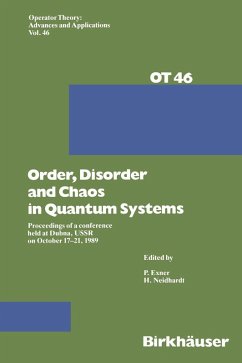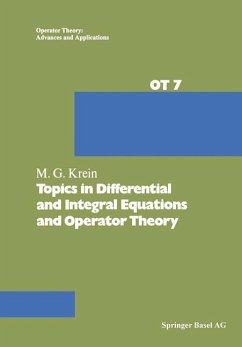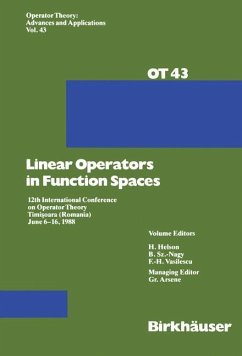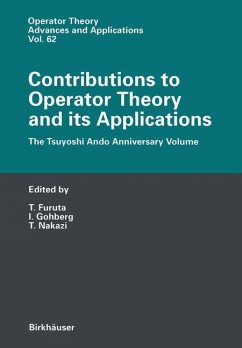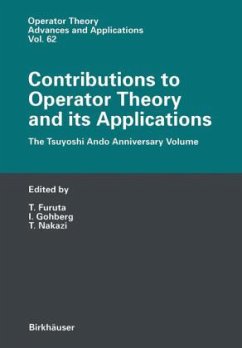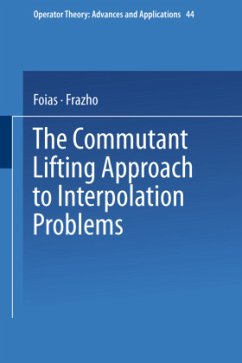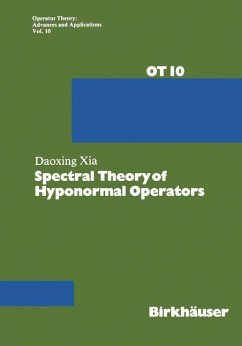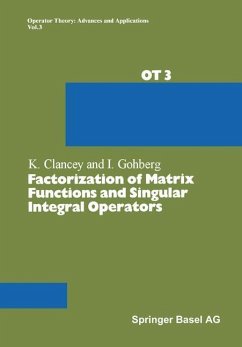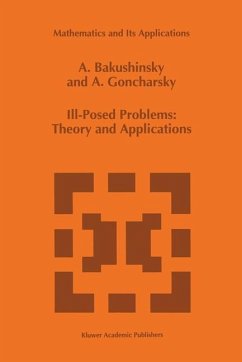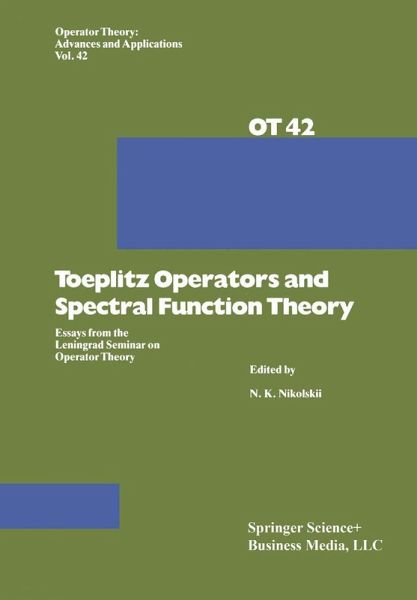
Toeplitz Operators and Spectral Function Theory
Essays from the Leningrad Seminar on Operator Theory
Versandkostenfrei!
Versandfertig in 1-2 Wochen
39,99 €
inkl. MwSt.

PAYBACK Punkte
20 °P sammeln!
The volume contains selected papers of the Spectral Function Theory seminar, Leningrad Branch of Steklov Mathematical Institute. The papers are mostly devoted to the theory of Toeplitz and model operators. These subjects are considered here from various points of view. Several papers concern the relationships of Toeplitz operators to weighted polynomial approximation. Namely, two papers by B. Solomyak and A. Volberg intensively treat the problem of spectra! multiplicity f~r analytic Toeplitz operators (which are, in fact, multiplication operators) and my paper can serve as an introduction to t...
The volume contains selected papers of the Spectral Function Theory seminar, Leningrad Branch of Steklov Mathematical Institute. The papers are mostly devoted to the theory of Toeplitz and model operators. These subjects are considered here from various points of view. Several papers concern the relationships of Toeplitz operators to weighted polynomial approximation. Namely, two papers by B. Solomyak and A. Volberg intensively treat the problem of spectra! multiplicity f~r analytic Toeplitz operators (which are, in fact, multiplication operators) and my paper can serve as an introduction to the problem. This theme of multiplicities is continued in a paper by V. Vasyunin where the multiplicity of the spectrum is computed for Hilbert space contractions with finite defect indices. V. Peller's paper deals with a perturbation theory problem for Toeplitz operators. In a paper by D. Yakubovich a new similarity model for a class of Toeplitz operators is constructed. S. Treil' presents asurvey of a part of spectral function theory for vector valued function (Szego-Kolmogorov extreme prob!ems for operator weights, bases of vector rational functions, estimations of Hilbert transform with respect to operator weights, the operator corona problem). As a concluding remark I dare only note that the whole collection convinces us once more without a doubt of the fruitfullness of the natural union of operator theory and complex analysis (if at all the union of these fields is at all different from their intersection).



